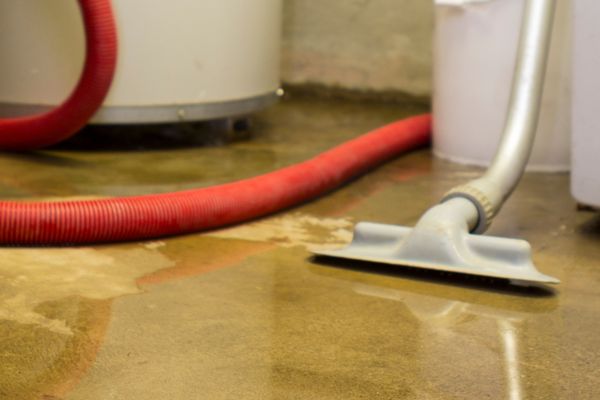A basement water leak is a homeowner’s nightmare, especially when it escalates into a flooded basement. Whether caused by heavy rain, foundation cracks, or burst pipes, immediate action can prevent extensive damage and mold growth.
Knowing what steps to take first can make all the difference in protecting your home and ensuring a smooth recovery process.
Immediate Actions to Take When You Spot a Leak | Basement Water Leak
When you notice a basement water leak, quickly mitigating damage is crucial. Here’s what you should do first:
- Stop the Source of Water: If the leak is from a burst pipe, immediately turn off the main water supply. If heavy rain is causing water intrusion, use sandbags or temporary barriers to minimize the flow.
- Move Valuables to Higher Ground: Move furniture, electronics, and important documents to prevent water damage.
- Turn Off Electricity: If water levels rise, shut off power to the basement at the main breaker to avoid electrical hazards.
- Ventilate the Area: Open windows and doors to promote airflow and slow mold growth while you assess the situation.
Also read: Dehumidifiers & Basement Water Damage Restoration
Assessing the Severity of the Leak
After taking initial steps, evaluate the extent of the leak to determine the best course of action. Consider these factors:
- How much water has entered? A small puddle might indicate a minor issue, while a flooded basement requires immediate intervention.
- Where is the leak coming from? Check foundation walls, pipes, and basement windows for signs of cracks or seepage.
- Has the water been sitting for a long time? Standing water for more than 24 hours increases the risk of mold and structural damage.
- Is there visible mold or musty odors? Mold growth suggests prolonged moisture exposure and may require professional remediation.
Safety Precautions Before Cleanup
Before diving into cleanup efforts, prioritize safety to prevent injury or contamination:
- Wear Protective Gear: Use gloves, waterproof boots, and masks to protect yourself from contaminated water and mold.
- Avoid Standing Water: If water has reached electrical outlets or appliances, do not enter the basement until a professional has ensured it is safe.
- Watch for Structural Damage: Before moving around, check for signs of foundation shifting, cracks, or weakened flooring.
- Keep Children and Pets Away: A flooded basement can contain harmful bacteria, chemicals, and hidden dangers.
Steps to Remove Water Quickly
Once the area is deemed safe, begin the water removal process as soon as possible:
- Use a Wet/Dry Vacuum: For minor leaks, a wet/dry vacuum can efficiently remove standing water.
- Employ a Sump Pump: If your basement has a working sump pump, ensure it properly drains excess water.
- Mop and Absorb Residual Moisture: Use towels and mops to soak up the remaining water and prevent lingering dampness.
- Set Up Fans and Dehumidifiers: These help speed drying and reduce humidity levels.
- Sanitize the Area: Clean surfaces with disinfectants to eliminate bacteria and mold spores.
When to Call a Professional for Basement Water Leak
Some basement water leaks require expert intervention to prevent long-term issues. Contact a professional if:
- Water damage extends beyond a minor leak or flooded basement.
- Mold growth is visible, or there is a strong mildew odor.
- Foundation cracks or structural damage are apparent.
- Electrical components have been compromised.
- The same issue has occurred multiple times, indicating a deeper problem.
If you need expert assistance, ServiceMaster of Greater Pittsburgh provides professional water damage restoration services to homeowners across Allegheny, Beaver, Butler, Westmoreland, and Washington Counties.

